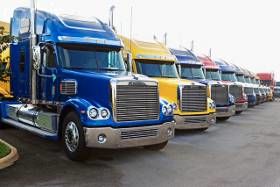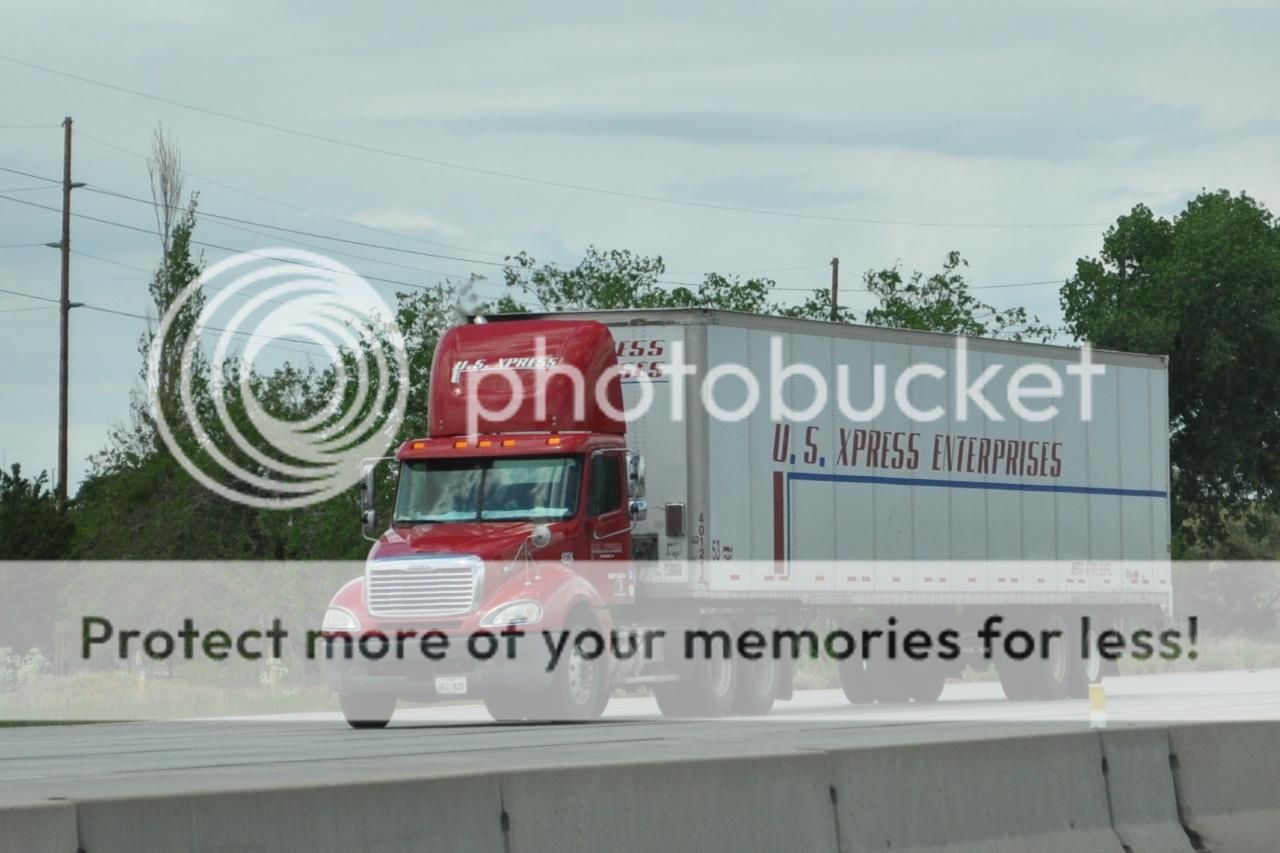Schneider Bulk - Leaving For Training Today!
Topic 702 | Page 5

Your posts are interesting to read. Thanks and please keep us posted and good luck!
-Dave

Very helpful posts. Sign me up!

Thanks, ThinksTooMuch. You are a very good writer and your posts of your experience in training were very informative. I put Schneider on my short list. I have read the blogs about the different kinds of freight and they all sound interesting. Dry vans would make me nervous in the NE where there are apparently lots of low bridges. It seems that flat beds and tankers could possibly go under a lower bridge where a dry van definitely would not be able to.
So I had a n00B question about surge in a tanker. Wouldn't surge be more of a problem with a partially filled tank? Seems to me if there is room for the load to slosh, it would slosh more that a tank that is filled full. Am I all wet? Ha ha! No pun intended. 
Also, does Schneider run food-grade tankers?
Dry Van:
A trailer or truck that that requires no special attention, such as refrigeration, that hauls regular palletted, boxed, or floor-loaded freight. The most common type of trailer in trucking.
Very helpful posts. Sign me up!
Welcome Greg. My fellow cone killer.

Glad I could answer some of your questions Richard and Greg.
Steven Schneider currently does manufacturing chemicals only, no food grade. And you are right about surge it only matters in partially filled tanks. For example today I am hauling 5800 gallons in a 7000 gallon tanker. So obviously the liquid has a lot of room to move. Last week I was hauling 5500 gallons in a 6000 gallon tanker. So I could barely feel it.
Most of the time there will be surge because rarely are the tankers filled to capacity. Depends on the weight of the product but a lot of times you'll be at 45,000 lb. with only 5000 gallons or less loaded.
Feel free to PM me if you have any specific questions about Schneider or tankers.

Are your weights usually accurately predictable? Have you ever been overloaded and had to return to have product removed?

Has never happened to me yet. We deal with some of the bigger chemical companies and most of them have a scale on site. You weigh empty, then you weigh loaded. So if you were overloaded you'd be at the plant and get some product removed I suppose.
Some of the smaller places without a scale I will always ask the loading personnel how many gallons were loaded and then check the Certificate of Analysis or MSDS to find the weight of the product per gallon and do the math. And even then I will go to the closest scale and get my weight, it's paid for by the company fuel card anyway.
The only time you may have an issue with weight is when you hook a preloaded tanker and the guy who loaded it was in a day cab. But if the preloaded trailer is 45,000 lb. or less on the net weight, then you are usually OK. I still always scale preloaded trailers because the guy loading could have made a mistake writing down the weight.
All of this goes for one compartment trailers. If you have 2, 3, or 4 compartments you still need to check your axle weights because different product has different weights, and each compartment may have different capacities.
I am making this way more complex than it needs to be. It's usually very straight forward. You weigh empty, they load you, you weigh full, you get on the road and try not to hit any deer. lol.
Day Cab:
A tractor which does not have a sleeper berth attached to it. Normally used for local routes where drivers go home every night.

Bumping this thread because there's a bunch of people on TT going to Schneider. People going to Bulk will get a good idea of what orientation is like. People going to Dry Van I assume orientation is similar enough, just ignore the tanker stuff.
Dry Van:
A trailer or truck that that requires no special attention, such as refrigeration, that hauls regular palletted, boxed, or floor-loaded freight. The most common type of trailer in trucking.
Thanks for all of your information and advice David. As it stands now I will be starting orientation in Coraopolis on November 30. I'm excited.
New Reply:
New! Check out our help videos for a better understanding of our forum features

















Preview:
This topic has the following tags:
Schneider National Hard Lessons Learned On The Road In Training Reports From CDL Training Truck Driver Training Truck Driving Orientation







 TT On Facebook
TT On Facebook
Hey, finding out that you're on the road doing well with a trainer you get along with is very interesting to me! Getting teamed up with a decent trainer and adapting to life on the road are always a huge concern for everyone. So to hear that things are almost feeling routine for you already is fantastic!
Of course you have to expect there will be plenty of ups and downs in the coming months so stay prepared for that mentally. Just roll with it out there. Keep having fun, keep learning, and focus on getting that one year of safe driving under your belt.